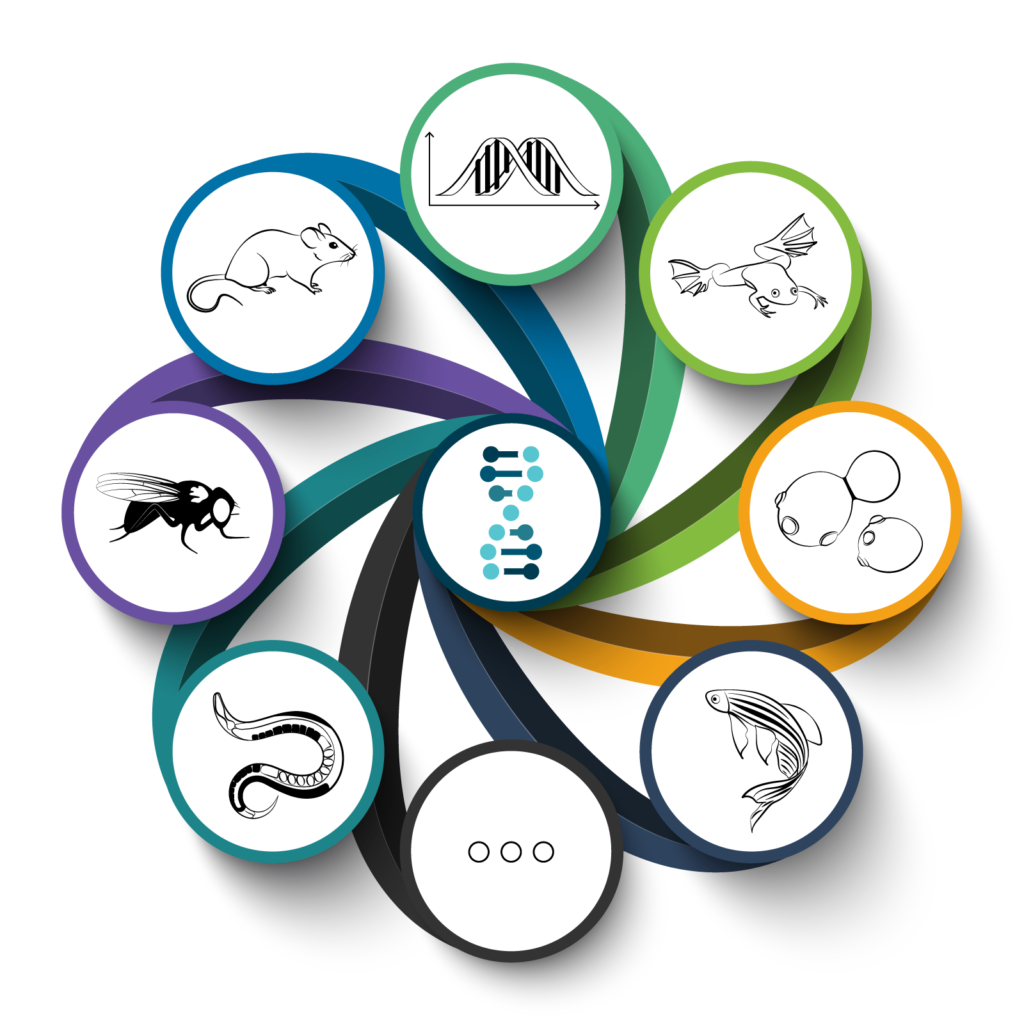Meet the communities that drive research innovation

Join us at The Allied Genetics Conference (TAGC) in the DC Metro region and meet the communities at the frontiers of biology.
Preview new research technologies under development and be the first to hear about new discoveries, new disease models, and new insights into the fundamentals of biology.
TAGC brings together researchers from the C. elegans, Drosophila, mammalian, Xenopus, yeast, zebrafish, and population, evolutionary, and quantitative genetics research communities—along with those researching humans, plants, and agricultural species. At this unique conference, topic-driven and community-specific sessions alternate to foster collaboration and inspire fresh thinking.
Learn about Professional Development Programs ≫
Conference Themes
New Technology and Resources
Gene/genome editing
Chemical biology
Emerging model organisms
Sequencing technologies
Single-cell genomics and proteomics
Optogenetics
Phenotyping technologies
Genomics and Systems Biology
Genome structure and organization
Gene and protein networks
Gene regulatory networks
Computational biology
Heterochromatin
Transposable elements
Microbiome
Evolutionary and Population Genetics
Adaptation and natural selection
Speciation
Experimental evolution
Comparative genomics
Phylogenetics and biogeography
Population history
Ecological genetics
Response to climate change
Quantitative Genetics
Gene-environment interactions
Gene-gene interaction (epistasis)
Genomic selection/prediction
Complex trait genetics
Statistical genetics methods
Developmental Genetics
Patterning, morphogenesis, and organogenesis
Regeneration and wound healing
Stem cells
Meiosis and germline development
Sex determination
Cell death
Intracellular Dynamics
Cell cycle, cell division, cytokinesis
Signaling (intracellular and intercellular)
Cytoskeleton
Cell motility (cilia, basal bodies)
Cell polarity
Nuclear organization
Stress response
Organelles
Autophagy and proteostasis
Protein trafficking
Metabolism and Physiology
Gene Regulation
Regulation of gene expression (transcriptional and post-transcriptional)
Gene regulatory networks
Epigenetics
Chromatin structure
RNA splicing
Non-coding RNAs (piRNA, siRNA, lncRNA, etc.)
Disease Models and Aging
Aging
Cancer
Mendelian diseases
Neurodegenerative diseases
Infection and immunity
Host-microbe interactions
Genome Integrity
DNA repair and recombination
DNA replication
Chromosome segregation and centromeres
Telomeres
Meiotic recombination
Mutation
Neurogenetics
Behavioral genetics
Neurodevelopment
Neurotransmission
Neural circuits
Ethical, Legal, Social Issues
Diversity, equity, and inclusion
Privacy
Eugenics
Ethical use of technology
GMOs
Best Practices in Training and Education
Diversification of training
Funding policies—distribution of funding; grant review
Educational practice
